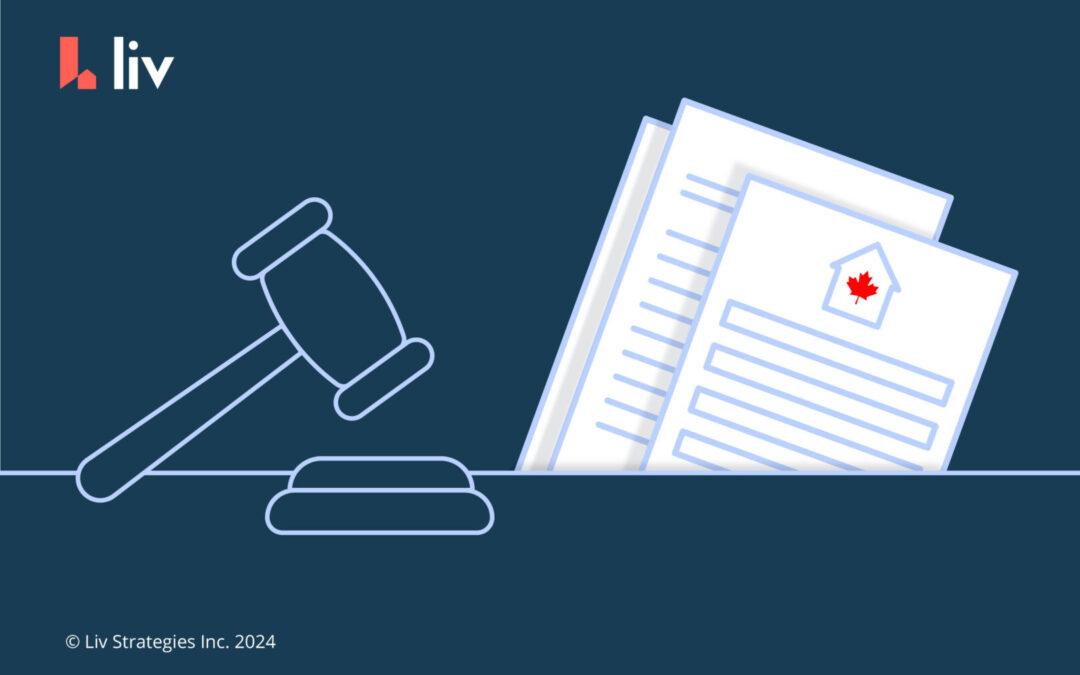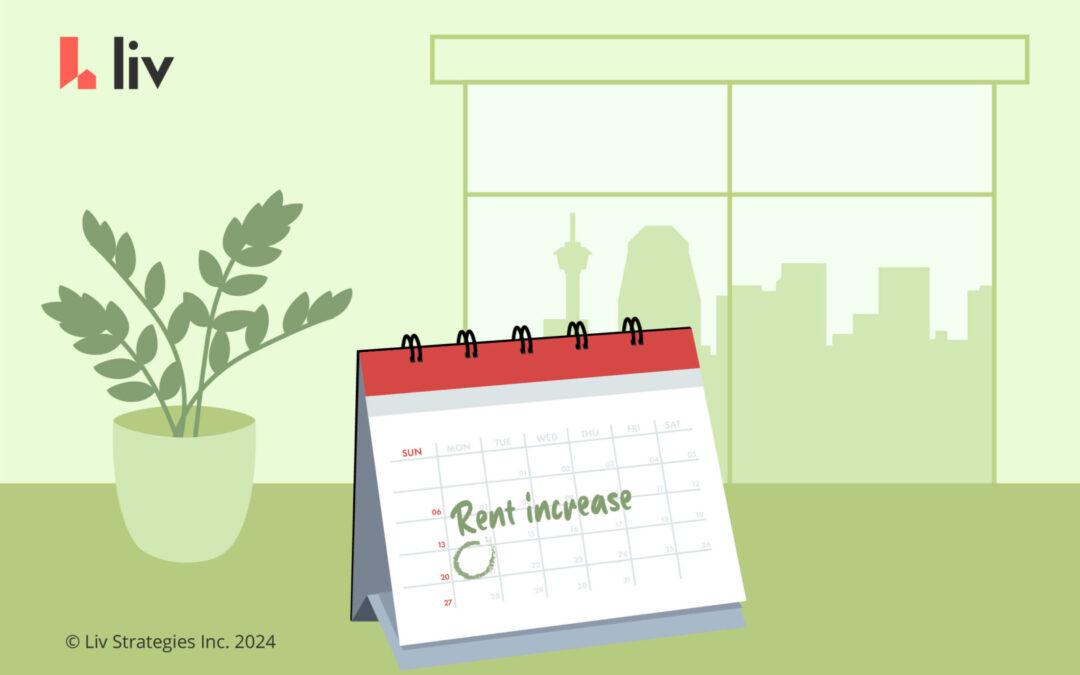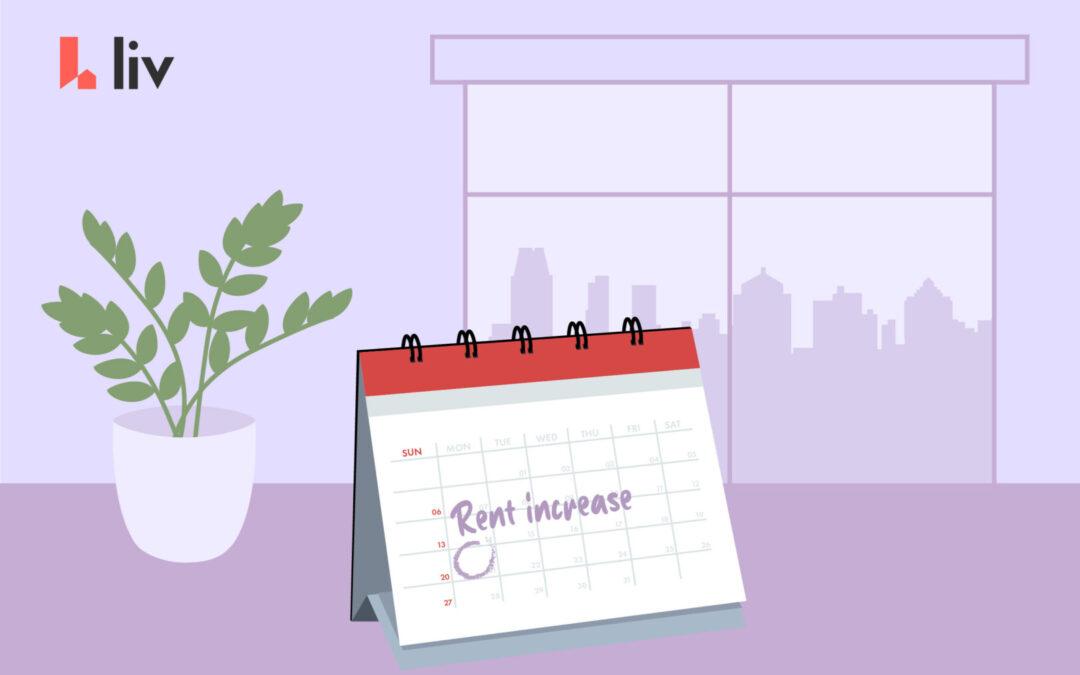There are many reasons why a landlord may want to enter their rental property throughout the course of a tenancy. When this situation arises, strict guidelines are in place to safeguard renters’ rights and ensure that adequate notice has been given before entry. Though this process is more or less the same across the country, each province does provide their own rules governing when and how a landlord can enter their rental unit. This article from liv.rent will break down these key differences by province for B.C., Ontario, and Alberta, as well as a guide to the overall process for both renters and landlords – plus tips for navigating landlord entry safely and amicably.
Join Our Newsletter
For more info on rental laws and policies (e.g. eviction, lease agreements, repairs & maintenance), subscribe to get the latest news.
Reasons for landlord entry
Balancing the rights of landlords and tenants is key when it comes to entering rental units in Canada. As the owners of the property, landlords do have rights when it comes to entry, but these rights are not unlimited. Tenancy laws are designed to allow landlords to maintain and manage their properties effectively while also respecting the privacy and security of their tenants.
Common reasons for landlords to enter a rental unit include:
- Conducting maintenance or repairs
- Performing routine inspections (once per month)
- Addressing safety concerns
- Responding to emergencies like water leaks or gas leaks
In any of these cases, landlords must ensure that their entry is reasonable and necessary. Routine inspections should not be overly intrusive, and entry should be planned at a time that minimally disrupts the tenant’s enjoyment of the property.
>> Recommended Reading: Rental inspection checklist for landlords
How much notice is required to enter the rental unit?
Whatever their reason for entering the rental unit, the most important thing for landlords to do is provide their tenants with the proper notice. Providing adequate notice is a fundamental aspect of respecting the tenant’s right to privacy and quiet enjoyment of their home.
The notice period landlords must provide before entering a rental unit can vary by province and territory. Typically, this notice period ranges from 24 to 48 hours, allowing tenants enough time to prepare or make necessary arrangements.
The methods by which landlords can deliver notice also vary slightly but typically this notice must be written and in some cases, delivered in person. It’s crucial for both landlords and tenants to be aware of the legally acceptable methods in their specific province or territory to ensure compliance with the law. However, in cases of emergencies, such as a burst pipe or a fire hazard, landlords are typically allowed to enter without prior notice to address urgent issues and ensure tenant safety.
Cases where notice is not required
In rare cases, landlords may be permitted to enter a rented unit without the tenant’s permission, and without prior notice. These situations generally arise from extenuating circumstances so for the most part, landlords will still be expected to provide written notice should they need to enter the rental property.
Here are some cases where notice isn’t required, in most provinces:
- The tenant is present and agrees to let the landlord in
- An emergency where the landlord must enter to protect life or property
- The tenant has abandoned the unit
- The landlord has a court/arbitrator order to enter the unit
Tenant rights & responsibilities
In addition to understanding landlord entry rules, it’s equally important for tenants to be aware of their rights and responsibilities when it comes to renting.
Tenants have the right to a safe and habitable living space, and landlords must keep the property maintained in good repair. If tenants encounter issues such as leaks, heating problems, or pest infestations, they should promptly notify their landlords to ensure the necessary repairs are made. Furthermore, tenants have the right to remain present when their landlord is in the unit, and landlords cannot require them to leave – even when the unit is being shown to buyers or prospective tenants.
On the flip side, tenants also have their own share of responsibilities, like keeping the rental unit reasonably clean and well-maintained. Additionally, if a landlord intends to enter the rental unit and has provided proper notice, tenants must not prevent them from entering the unit. Adhering to these responsibilities helps maintain a positive landlord-tenant relationship and ensures a smooth renting experience.
Provincial differences for landlord entry
The rules governing landlord entry can differ from province to province, so it’s important for both tenants and landlords to familiarize themselves with their province’s guidelines. Here’s a brief overview of the variations in B,C., Ontario and Alberta:
B.C.
- Notice Requirement: 24 hours’ written notice
- Entry Hours: Generally between 8 a.m. and 9 p.m.
- Exceptions: Emergency entry allowed without notice.
Ontario
- Notice Requirement: 24 hours’ written notice
- Entry Hours: Between 8 a.m. and 8 p.m., unless the tenant agrees to other times.
- Exceptions: Emergency entry allowed without notice.
Alberta
- Notice Requirement: 24 hours’ written notice
- Entry Hours: Typically during reasonable hours, respecting the tenant’s right to quiet enjoyment.
- Exceptions: Emergency entry allowed without notice.
Dispute resolution & resources
Sometimes, despite best efforts on both sides, disputes may arise between landlords and tenants regarding entry issues or other matters related to the rental unit. In such cases, it’s essential to be aware of dispute resolution mechanisms available in your province or territory. Many provinces have residential tenancy boards or offices that can help mediate and resolve disputes.
If a tenant believes that a landlord has unlawfully entered their rental unit, they should first speak with them to ask that they follow the legally required entry process. If the landlord refuses to cooperate or if the tenant still has concerns, they may then apply for dispute resolution. If approved, the landlord may be ordered to comply with the law, or the tenant may be permitted to change the locks and keep the only keys – which they would still have to return to the landlord at the end of their tenancy.
Here are some collected resources from both liv.rent and provincial governments to help renters & landlords better navigate the entry process:
Resources for BC landlords & renters
- Guide to Landlord’s Access
- Dispute Resolution – Province of B.C.
- Guide to B.C. Tenancy Forms – liv.rent
- Landlord & tenant responsibilities in B.C. – liv.rent
- B.C. Rental Laws Resources – liv.rent
Resources for Ontario landlords & renters
- Landlord’s Right of Entry
- Landlord and Tenant Board – Dispute Resolution
- Guide to Ontario Tenancy Forms – liv.rent
- Ontario Rental Laws Resources – liv.rent
Resources for Alberta landlords & renters
- Guidelines During a Tenancy
- Residential Tenancy Dispute Resolution Service (RTDRS)
- FAQ: Landlord & tenant responsibilities in Alberta – liv.rent
- Alberta Rental Laws Resources – liv.rent

Rethink The Way You Rent
Not on liv.rent yet? Experience the ease of digital applications & contracts, verified tenants & landlords, virtual tours and more – all on one platform. Sign up for free or download the app.
Subscribe to receive the latest tenant & landlord tips and get notified about changes in the Canadian rental market.
>> Stay up-to-date on the average rent in Vancouver, Toronto and Montreal: Rent Reports.




0 Comments